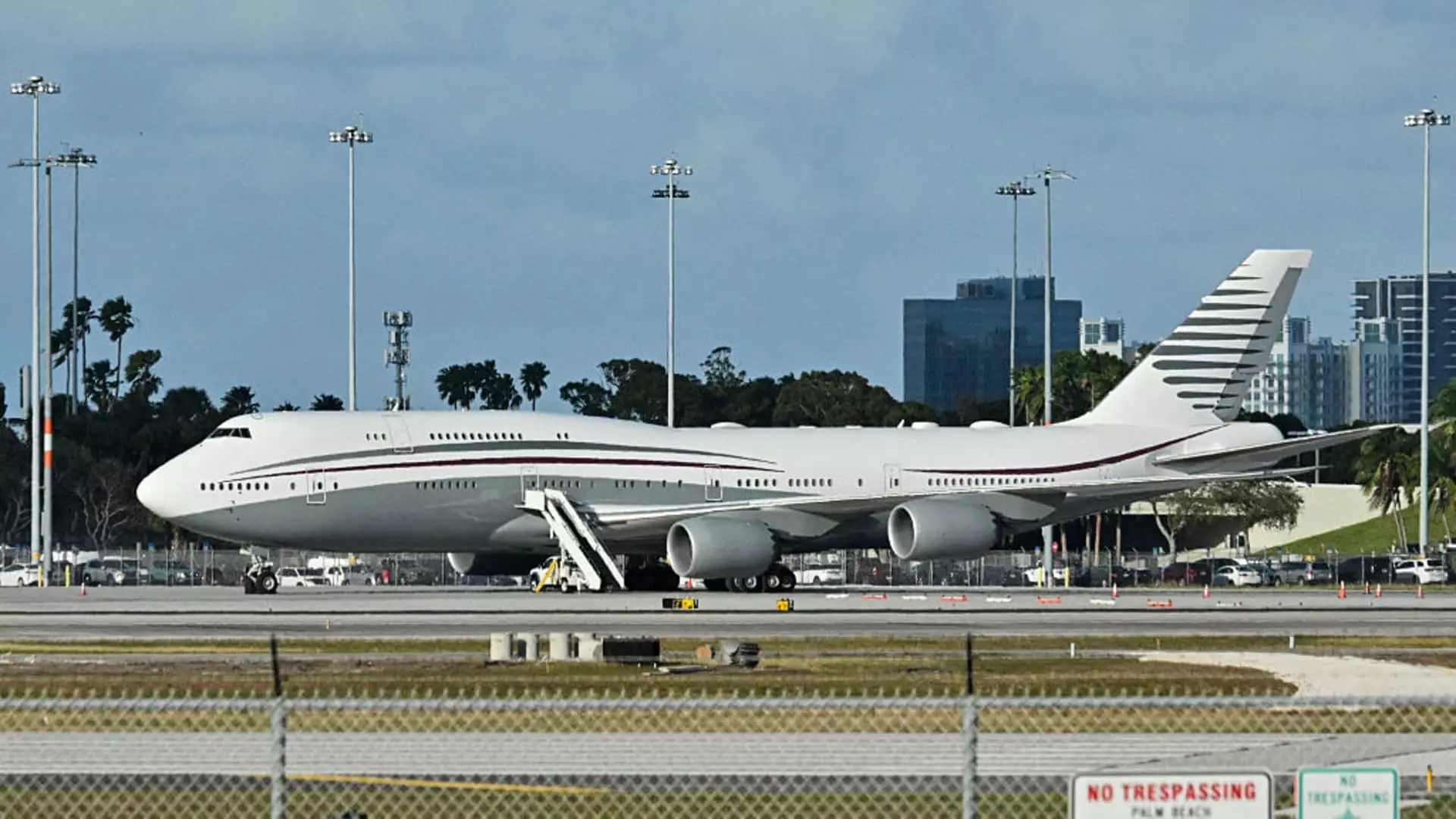The recent acceptance of a luxury Boeing 747 jet from Qatar by the Trump administration has thrown its ethical implications into the limelight, igniting a fierce debate on the intersection between foreign influence and American values. As the Pentagon officially confirmed the handover, it became clear that this exchange is not merely a cordial gesture from a friendly nation; it is steeped in layers of complexity that threaten the integrity of the U.S. presidency itself. Defense Secretary Pete Hegseth’s proclamation that the acceptance aligns with federal regulations does little to assuage the concerns raised by critics. Here, we find ourselves wrestling not with the plane’s specifications but with the troubling narratives of power dynamics and potential bribery that accompany such gifts.
A Strained Narrative
To frame this situation as merely a benevolent act on Qatar’s part underestimates the intricate political fabric that binds the two countries. President Trump, having termed the jet “a great thing” during a public discussion with South African President Cyril Ramaphosa, exuded a bravado that appears almost reckless in light of the backlash. Ramaphosa’s quip about not having a plane to gift highlights an ironic readiness to take part in a discussion that had spiraled into absurd territory. Yet it is the implications of flying around in a gift from a foreign government that are troubling. Can we genuinely ignore the notion that Qatar’s intentions might not be as altruitious as Trump suggests? A prime question emerges: how does the acceptance of such gifts reshape American foreign policy and domestic politics?
The Political Fallout
The uproar from Democrats and some Republicans reveals a fracturing consensus on national security. Senate Minority Leader Chuck Schumer’s condemnation of the jet as a “stain on the office of the presidency” strikes at the heart of what it means to govern ethically. Schumer’s proposed legislation aimed at prohibiting any foreign aircraft from being designated as Air Force One is not merely a partisan move but a clarion call for preserving the sanctity of the presidency from foreign meddling. When members from various sides of the aisle express their discomfort over potential espionage or ulterior motives behind the gift, it becomes evident that the implications extend far beyond a presidential aspiration for modernity and flair.
National Security Risks
Concerns articulated by figures like Senator Susan Collins transcend party lines and tap directly into the core of American security. The idea that a foreign government could assert influence over the U.S. presidency through tangible assets raises alarm bells about the ethics and legality governing such transactions. It begs the question: do we risk compromising our sovereignty for a token of goodwill, however extravagant? Estimates suggesting that converting this 13-year-old Qatar jet into a proper Air Force One could cost taxpayers over a billion dollars is not just a financial dilemma. It’s about the principle of governance and maintaining a responsible, accountable relationship with our allies. When does a government asset become a bargaining chip, and what does that mean for the integrity of decision-making in Washington?
Infatuation with Distractions
Moreover, this controversy reveals a larger pattern of distraction that characterizes Trump’s presidency. Amid a plethora of issues—from health care and immigration to economic disparity—accepting a lavish gift while simultaneously dismissing concerns over ethical conduct diminishes the necessary, serious debates about governance. The acceptance of the jet showcases an alarming prioritization of vanity and optics over substantive policy discussions. It begs scrutiny into how political leadership can become entrapped within the theatrics of spectacle rather than the gravity required of their roles.
In a society that prides itself on democratic values, maintaining a firewall between foreign influence and domestic policy is not merely a luxury but a necessity. As America grapples with its evolving role on the world stage, the acceptance of a philanthropic jet raises more than rhetorical questions—it elicits a re-examination of what it means to lead responsibly in a world fraught with geopolitical complexities.

